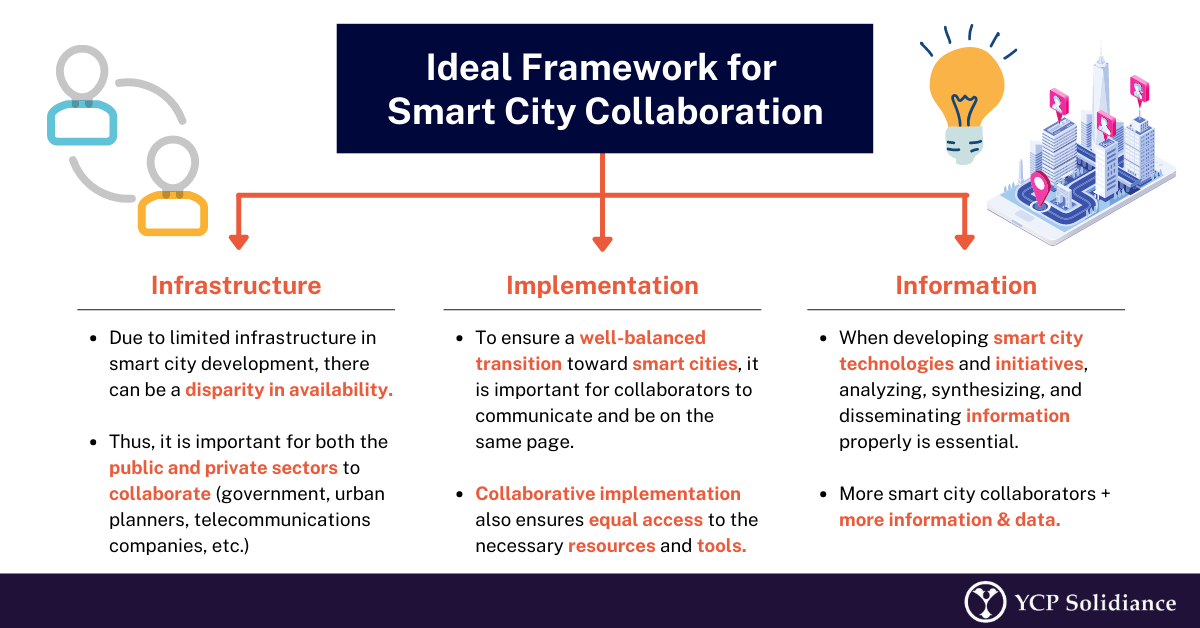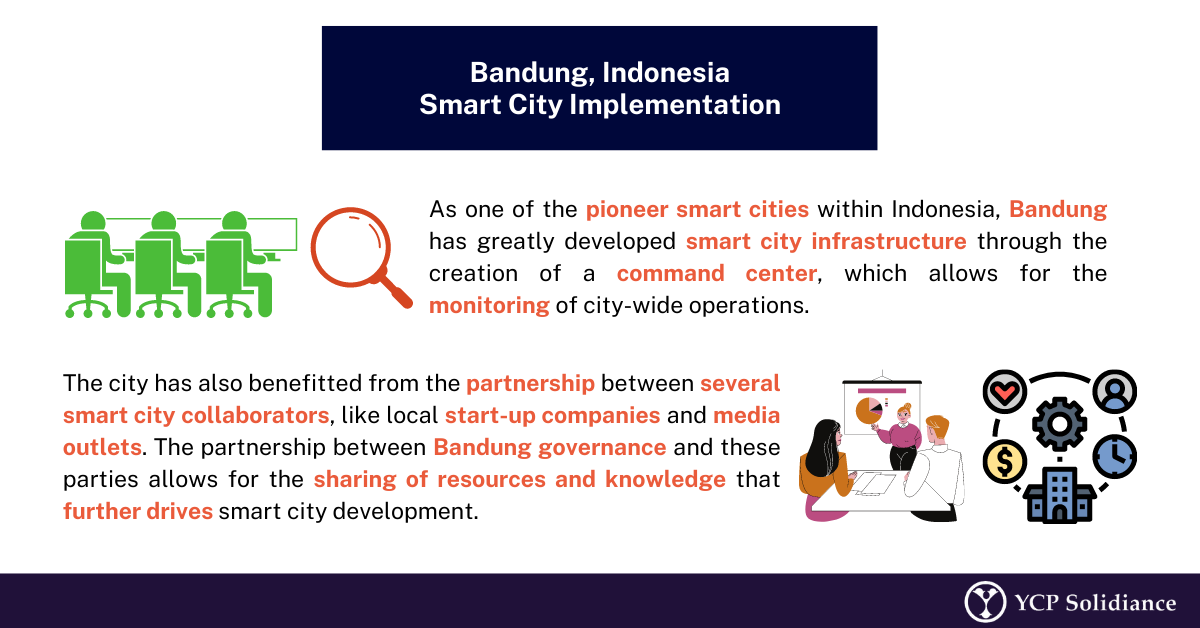The COVID-19 pandemic has stifled economies throughout the world. Indonesia, for example, has endured approximately 4.2 million total cases as of November 2021, the third most in Asia and 14th in the world—a number that has shifted its economic performance over the past two years.
Despite the difficulty brought about by the pandemic, Indonesia’s future remains surprisingly bright because of its smart city developments. In line with its “100 Smart Cities Movement,” the country has managed to leverage its technology-engaged population and smart city roadmap as a means to recover from the adverse effects of the pandemic.
Given that the pandemic has severely limited access to resources, some cities like West Java, Jakarta, and Bandung have adapted their smart city command centers into COVID-19 war rooms, as reported by the United Nations Development Programme. Furthermore, citizen reporting apps like Lapor! have also been revamped to allow for tracing and reporting of COVID-19 cases.
Moreover, in the YCP Solidiance white paper Can Indonesia Achieve ‘100 Smart Cities’ by 2045?, data revealed that internet penetration rate within the country had reached 64%, with smartphones and laptops as the most popular devices used. Considering this, further application of smart city technology in practical situations can also be found in the practices of cashless transactions and smart government, initiatives spearheaded by previous smart city developments. By popularizing such processes, citizens do not only benefit from the convenience of technology, but also from decreased contact and exposure which lessens risk of infection.
By successfully retrofitting pre-existing smart city technologies to cope with the pandemic, Indonesia has enhanced its COVID-19 response for technology to enable proper monitoring, processing, and analysis of relevant data related to domestic transmission of the virus.
Economic Recovery via Smart Cities
Smart city technology has also enhanced Indonesia’s economic recovery, especially in pioneering smart cities such as Bandung. According to an article by Antara News, the mayor of Bandung believes that the city will be able to capitalize on its advancements in digital technology to bounce back economically. As more citizens in Bandung activate and engage digitally, online businesses in sectors like e-commerce will continue to rapidly grow; a trend which will drive trade all throughout the city.
Within Bandung, smart city technology as a gateway to economic recovery will also provide business opportunities to Micro, Small, and Medium Enterprises (MSMEs). As both the public and private sector drive e-commerce and digital trade, MSMEs are expected to become heavily involved as producers, service providers, and logistical support. In addition, smart city collaborations also aim to further promote the involvement of unicorns like Bandung smart city collaborator and multi-service platform Gojek, who has regularly educated MSMEs on practices that businesses can adopt during the pandemic.
As Indonesia continues to leverage smart city technologies to recover from the effects of the coronavirus, doing so will not only be advantageous to the country in the short-term, but also in the long-term. By promoting the continued development of smart cities even during the pandemic, other Indonesian cities are set to benefit as this progress will serve as the foundation for future development, which will ultimately help achieve the goals outlined in the 100 Smart Cities Movement initiative.
For more insight on the benefits of smart city technology amid the pandemic, subscribe to our newsletter here.


